Category: Translation
-
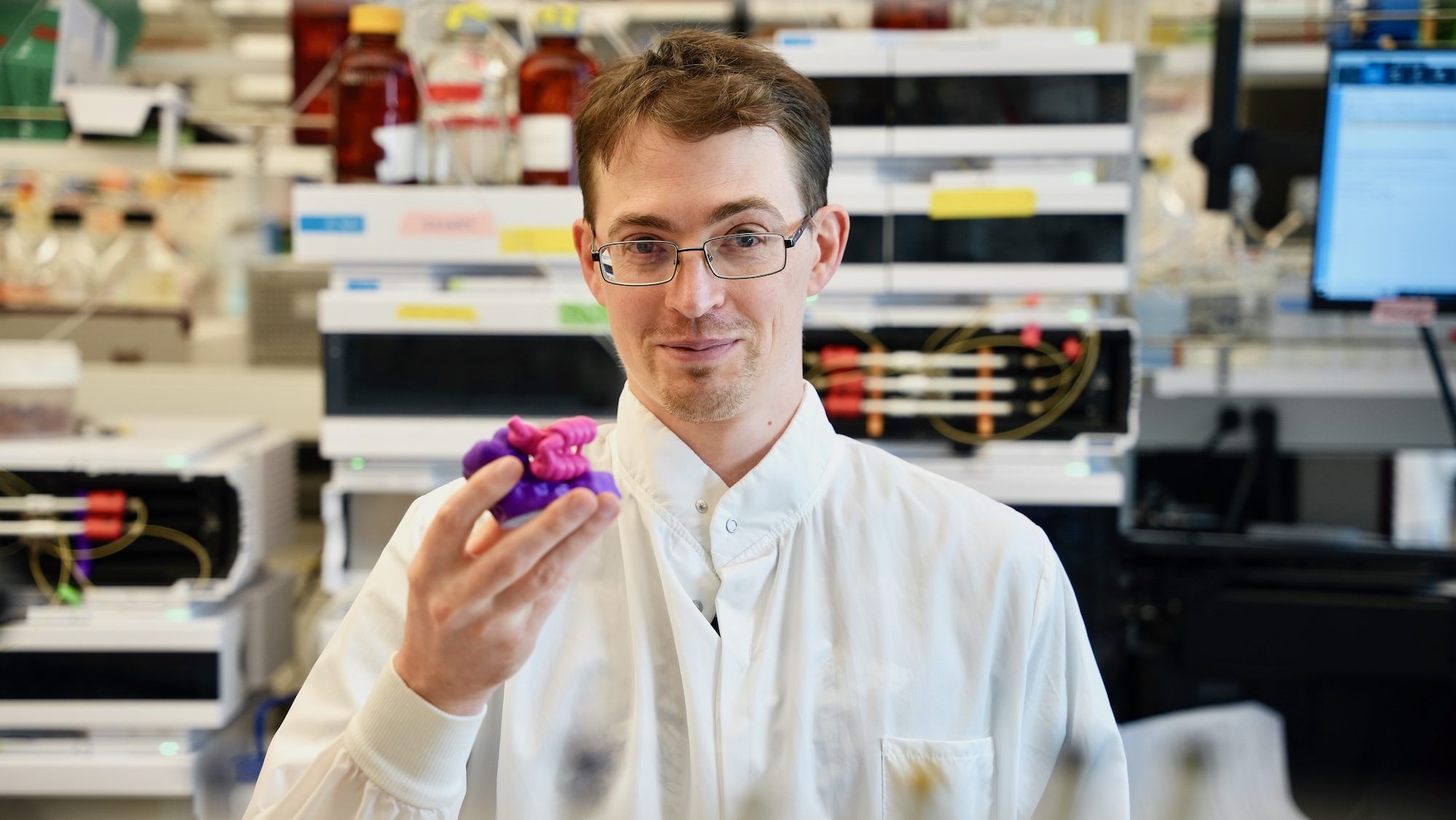
Derrick Hicks wins additional WRF translational funding
Funding will enable further development of Hicks’ minibinder conjugates as an improved option for radiotherapy cancer treatments.
-

David Baker on AI, open science, and building biotech startups
Our director recently share his thoughts on the impact of AI on life science startups. He spoke with Jenny Cronin, principal at the AI2 Incubator.
-
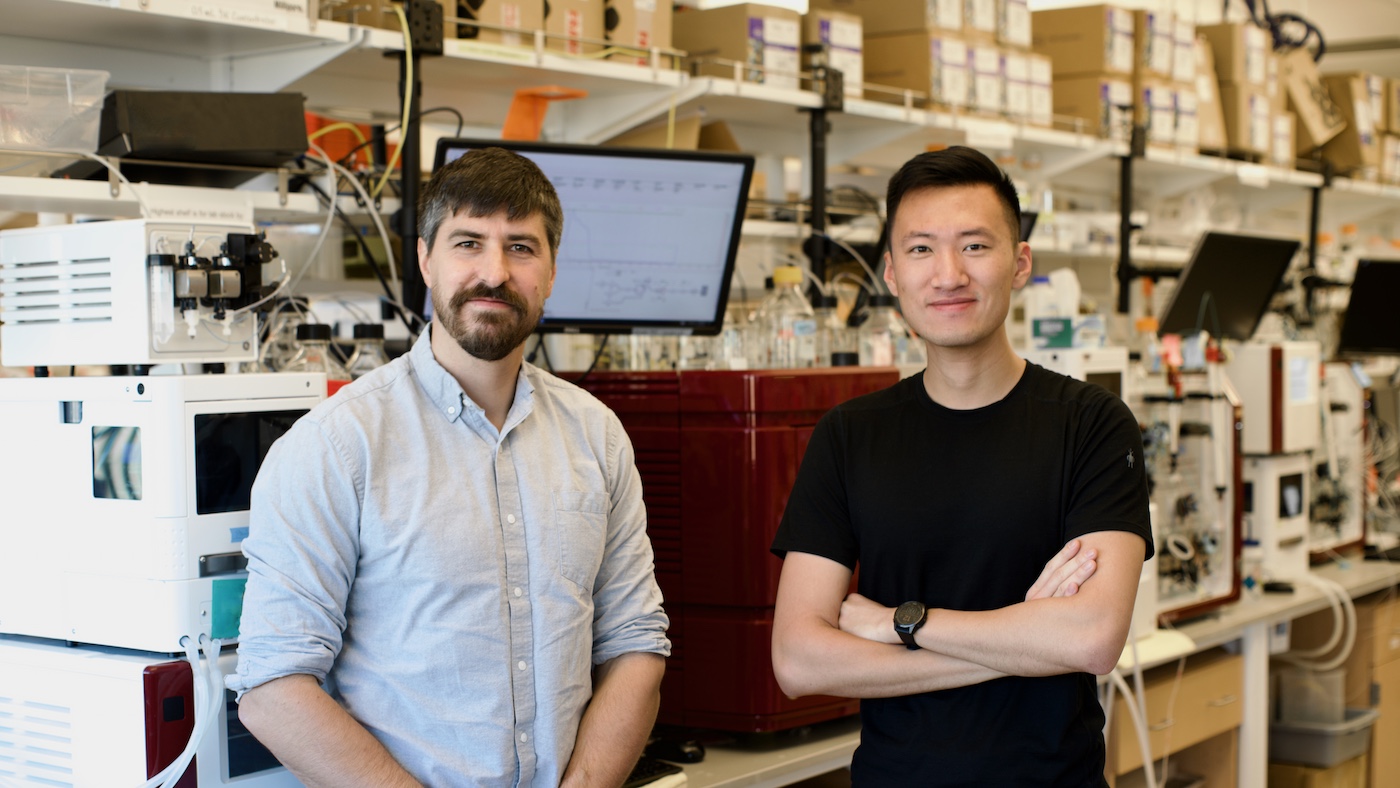
Nanopore designers receive first commercialization grant
With support from the Washington Research Foundation, this project aims to create custom protein nanopores that can be integrated into semiconductor devices, unlocking the first direct interface between biology and electronics for multi-omics applications.
-

Derrick Hicks receives WRF translational funding
The $250,000 grant will enable Hicks and colleagues to compare novel technology with established approaches to treating a range of cancers.
-

Lazarovits and Ueda receive WRF translational funding
Washington Research Foundation (WRF) has awarded a $498,804 technology commercialization grant to Institute for Protein Design researchers Drs. James Lazarovits and George Ueda. The funding will enable Lazarovits and Ueda to further develop their “plug and play” Antibody Cage (AbC) Platform, which converts antibodies into new structures that uniquely bind multiple targets to improve treatment…
-
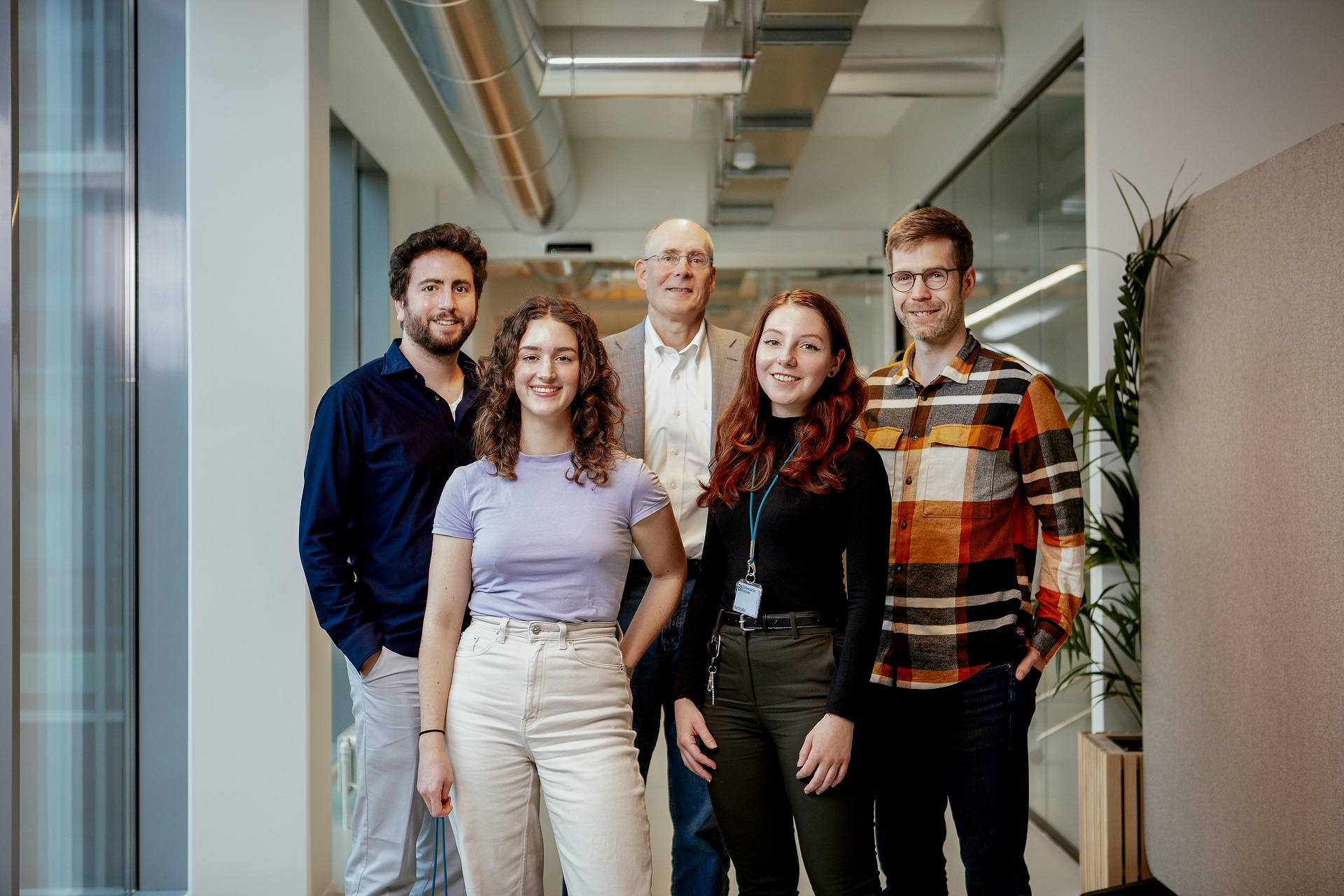
Establishing our first international translational research project
From our partners at the BioInnovation Institute: BioInnovation Institute (BII), an international enterprise foundation with a non-profit objective incubating and accelerating world-class life science research, announces today that it has accepted a new project into its Bio Studio program. Based on recent breakthroughs in Artificial Intelligence (AI) and protein design, the project is creating a…
-
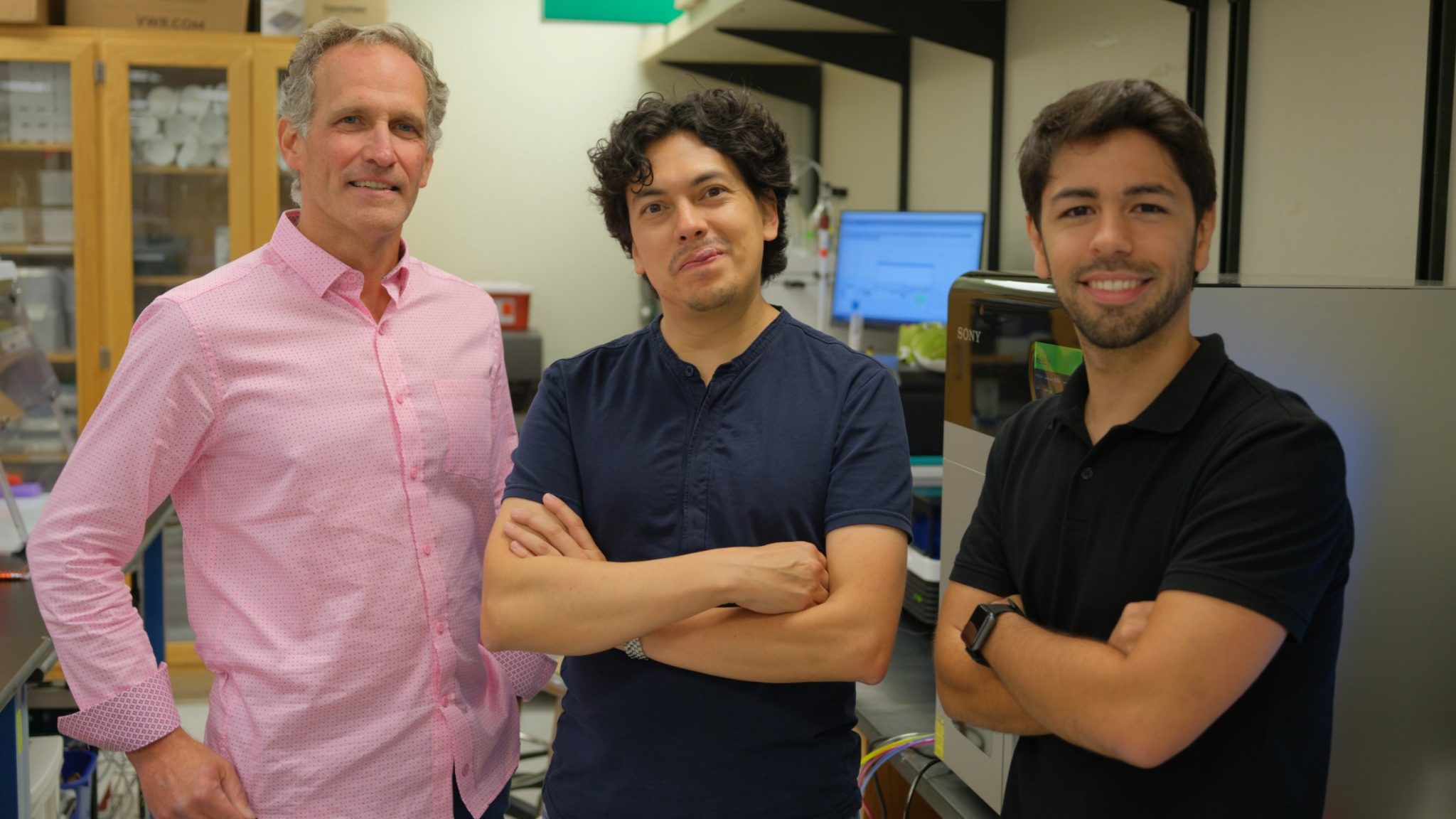
Biosensor startup Monod secures $25M seed financing
Monod Bio, a life sciences company developing custom diagnostic biosensors that emit light to detect specific biomolecules of interest, today announced it has raised a $25M seed financing round. The round was led by Matrix Capital, with participation from the Global Health Investment Corporation, Cercano Management, The Washington Research Foundation, Boom Capital Ventures, Sahsen Ventures,…
-

Anindya Roy wins Go-To-Market Award for drug development
The Washington Entrepreneurial Research Evaluation and Commercialization Hub (WE-REACH) is pleased to announce a product concept award for Dr. Anindya Roy and his team at the UW Medicine Institute for Protein Design, including Drs. Jake Kraft and Hua Bai. They are developing a novel binder protein in an aerosolized delivery system to treat idiopathic pulmonary…
-
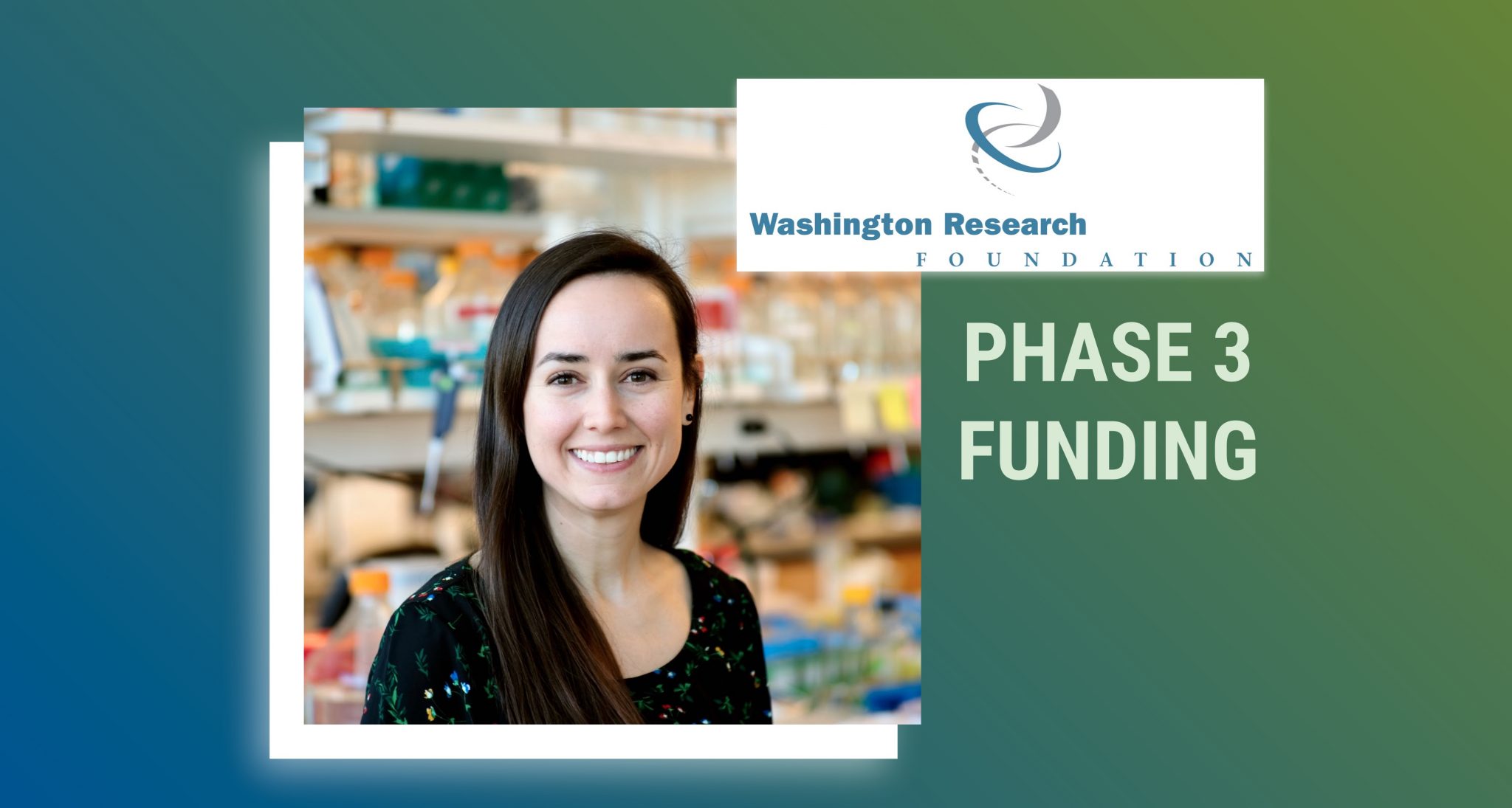
Stephanie Berger wins additional WRF translational funding
Washington Research Foundation (WRF) has awarded a $700,000 phase three technology commercialization grant to Stephanie Berger, Ph.D., to support the development of an oral biologic for inflammatory bowel disease (IBD). Berger, a translational investigator at the Institute for Protein Design, received two previous grants totaling $300,500 from WRF for this work. IBD affects roughly three…
-

Dr. Roy awarded WRF translational funding
Washington Research Foundation (WRF) has awarded a $250,000 phase 2 technology commercialization grant to Anindya Roy, Ph.D., to further develop a novel miniprotein binder for the treatment of idiopathic pulmonary fibrosis (IPF). Roy, an acting instructor in David Baker’s lab at the University of Washington’s Institute for Protein Design (IPD), is building on positive results…
-

George Ueda and James Lazarovits awarded WRF translational funding
The Washington Entrepreneurial Research Evaluation and Commercialization Hub (WE-REACH) has announced investments in three new awards, including one to researches at the Institute for Protein Design, to expedite early-stage product development for promising biomedical innovations. The three awards are intended to reduce skin injury from wound dressing, to treat COVID-19 induced viral sepsis, and to…
-
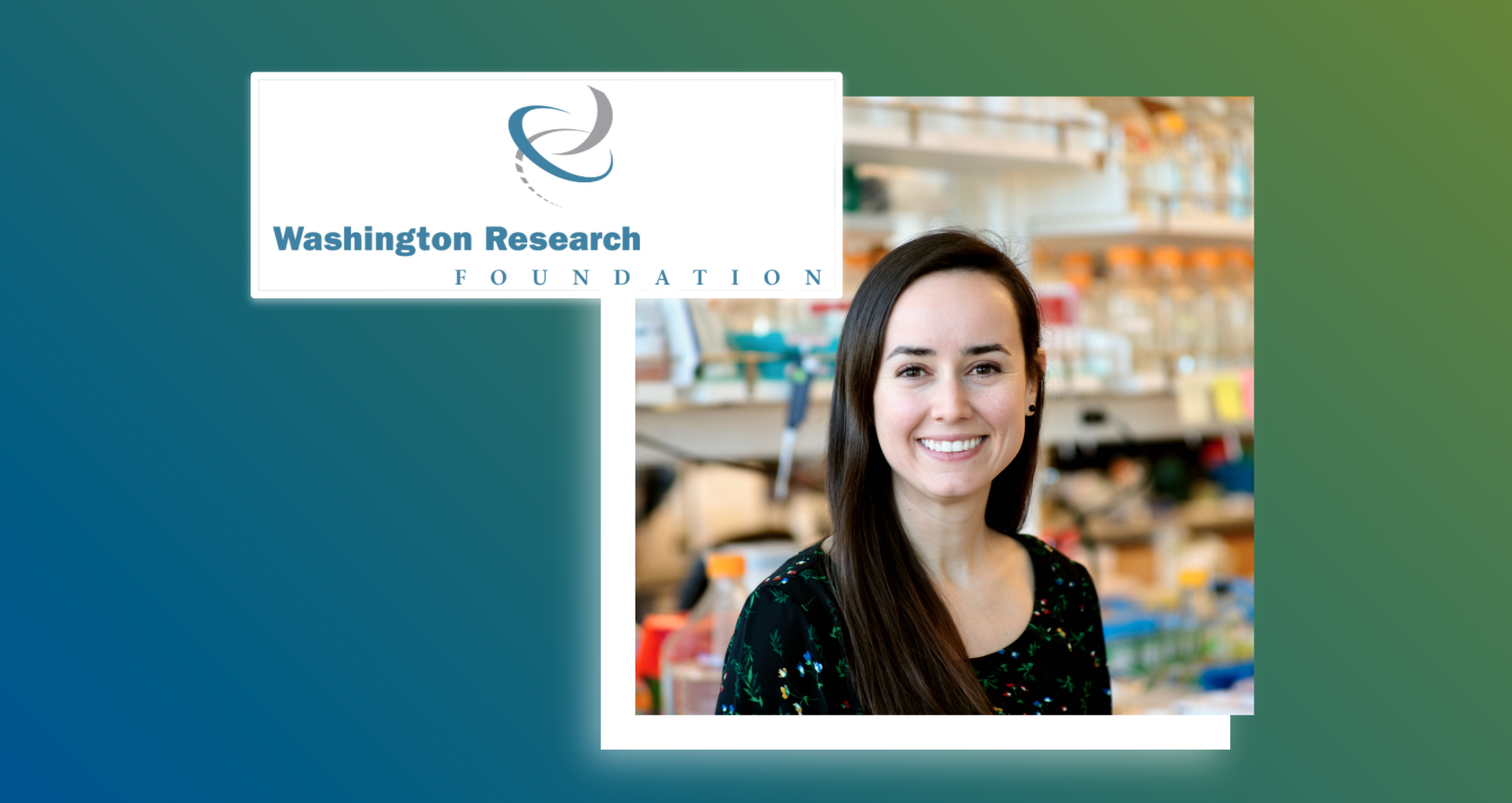
Dr. Berger awarded WRF translational funding
Washington Research Foundation (WRF) has provided a $250,000 grant to support work carried out by Stephanie Berger, Ph.D., on a new therapeutic for patients with inflammatory bowel disease (IBD). A grant of $50,500 from WRF in 2019 and an award from Washington Entrepreneurial Research Evaluation and Commercialization Hub (WE-REACH) in 2020 enabled Berger, a translational investigator at the…
-
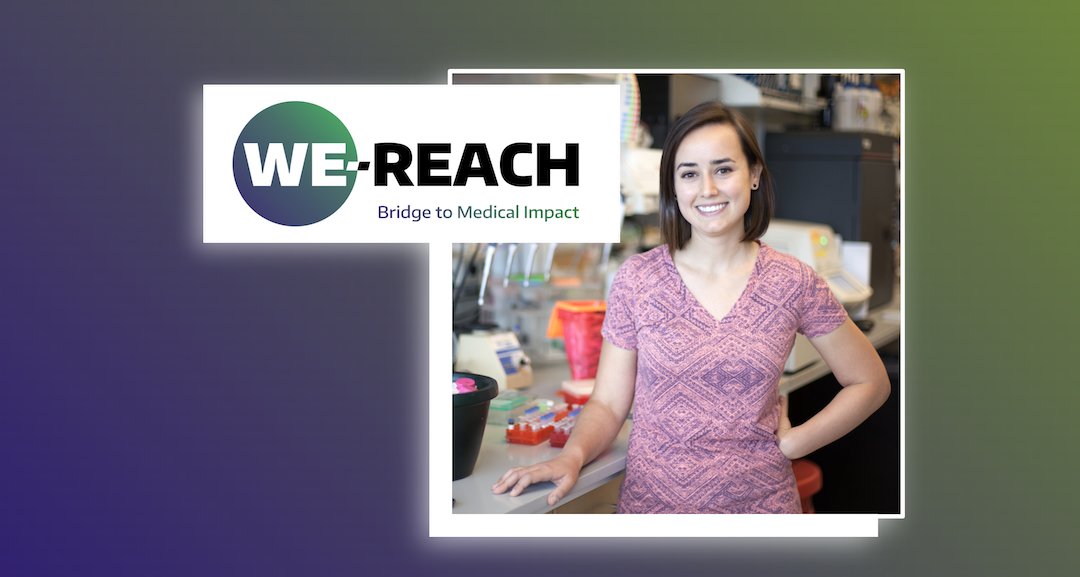
Dr. Berger selected for WE-REACH funding
The Washington Entrepreneurial Research Evaluation and Commercialization Hub (WE-REACH) has announced its first awards to facilitate early-stage product development for two biomedical innovations. WE-REACH invests up to $200,000 per awarded project. Funding comes from the NIH with matching support from our partners at the Institute of Translational Health Sciences, CoMotion, the Institute for Protein…
-
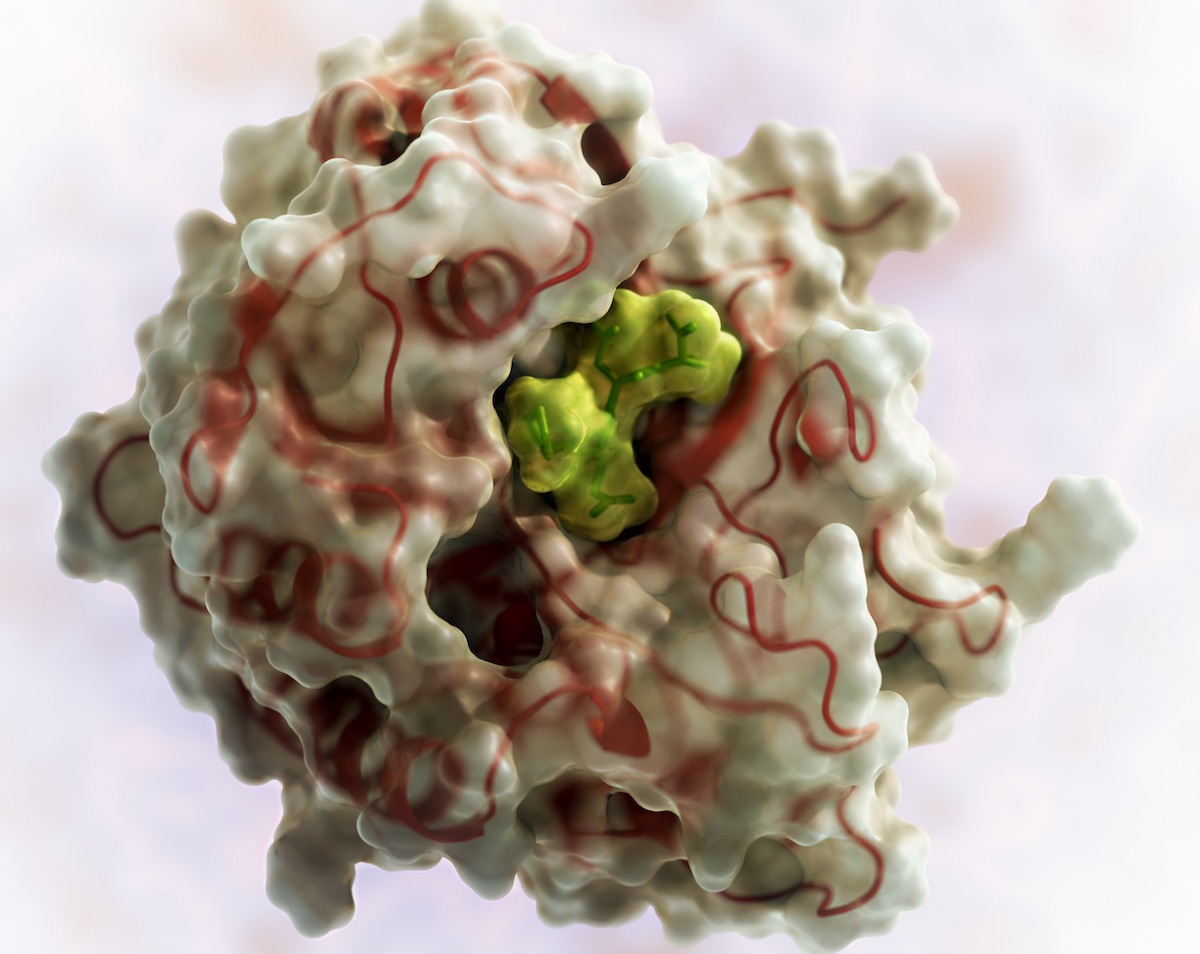
Takeda acquires PvP Biologics
PvP Biologics is on a mission to develop a highly-effective therapeutic to reduce the burden of living with celiac disease. They are advancing an oral enzyme — TAK-062 — designed to break down gluten in the stomach. This exciting research, which began as an iGEM project in 2011, was matured at the Institute for Protein…
-
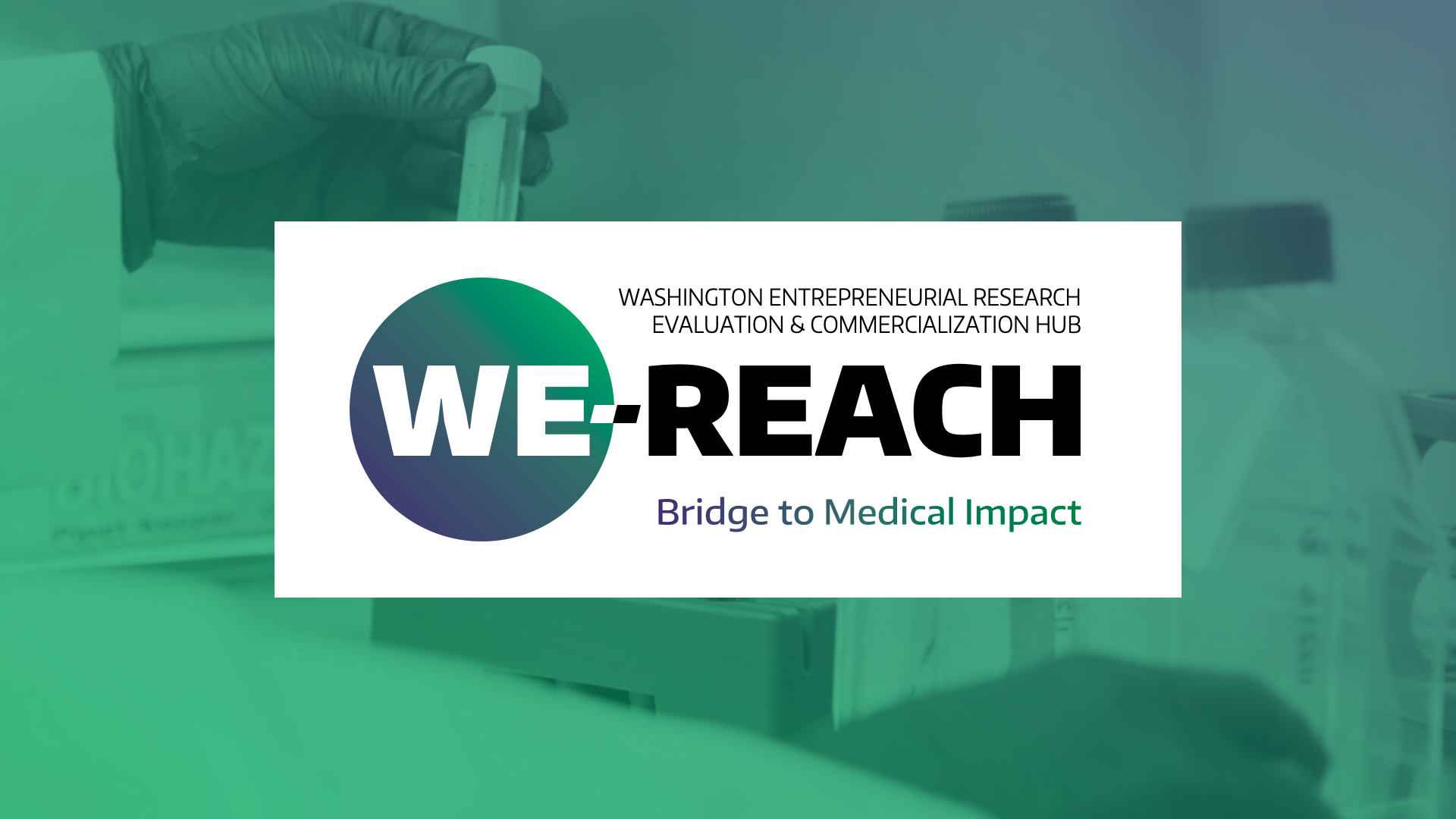
Introducing WE-REACH, a new biomedical innovation hub
With $4 million in matching funds from the National Institutes of Health, the University of Washington has created a new integrated center to match biomedical discoveries with the resources needed to bring innovative products to the public and improve health. “The University of Washington and regional partner institutions produce some of the most exciting biomedical…
-
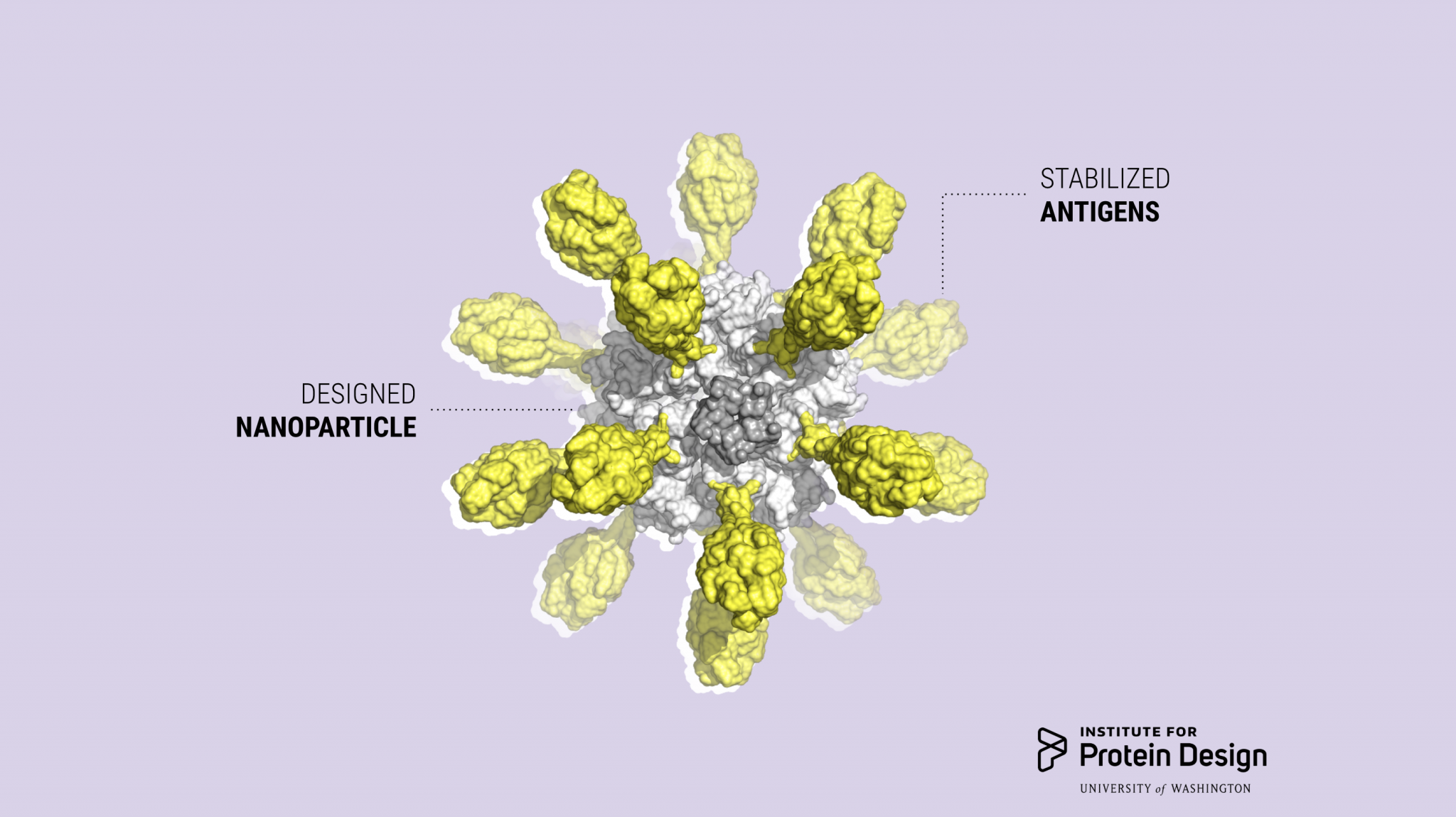
Icosavax launches to advance designer vaccines
Icosavax, Inc. today announced its launch with a $51 million Series A financing. The company was founded on computationally designed self-assembling virus-like particle (VLP) technology developed here at the IPD (Cell 2019, Preview). The proceeds of the financing will be used to advance the company’s first vaccine candidate, IVX-121, for respiratory syncytial virus (RSV) for…
-
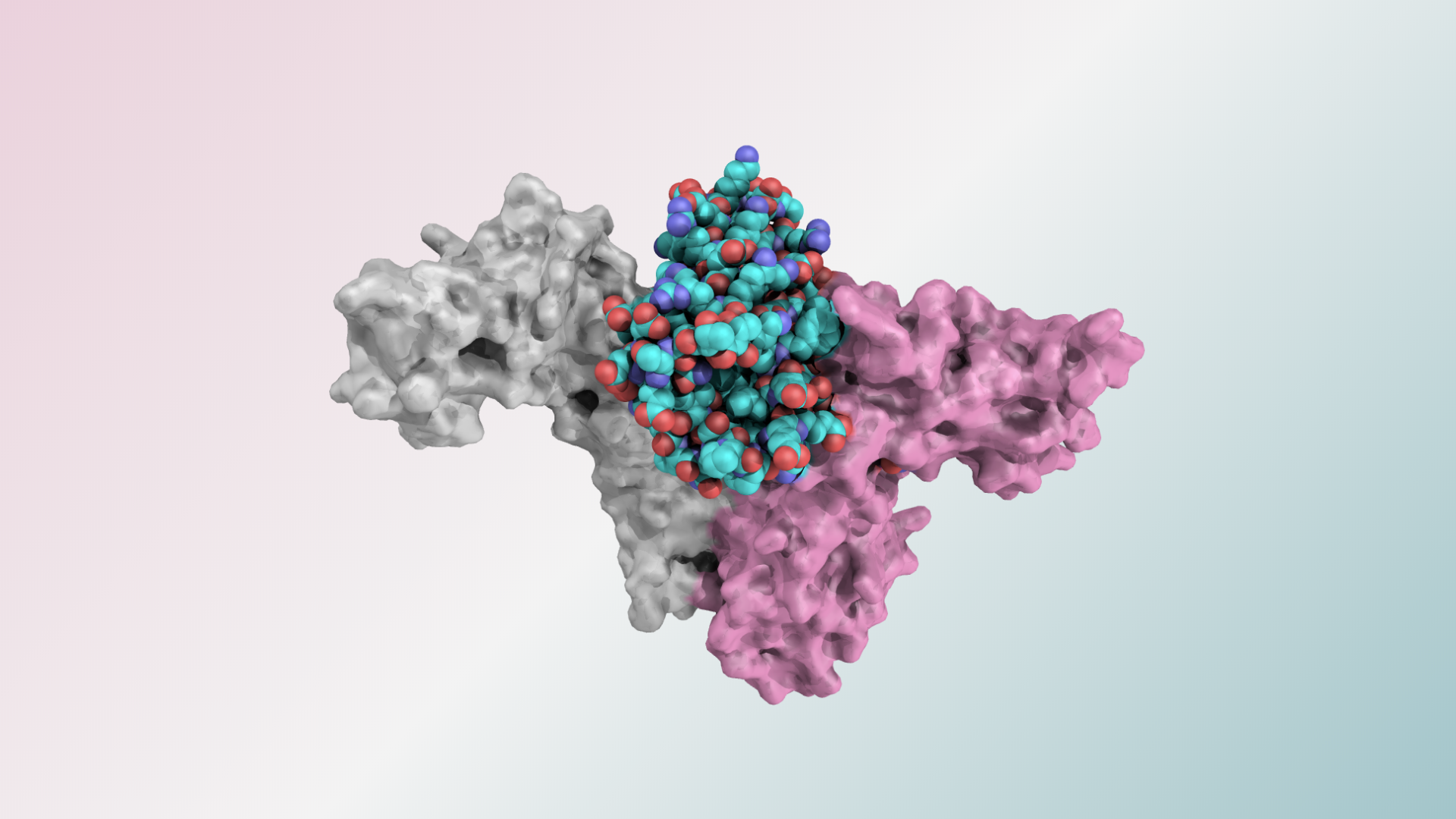
Neoleukin: from spinout to public company in 7 months
IPD-spinout Neoleukin Therapeutics announced this week a merger with Aquinox Pharmaceuticals, a publicly traded company. The combined company will change its name to Neoleukin Therapeutics, and will continue to advance its Rosetta-designed protein platform for cancer, inflammation, and autoimmune diseases. Neoleukin was spun out of the IPD Translational Investigator Program in January. As a result…
-
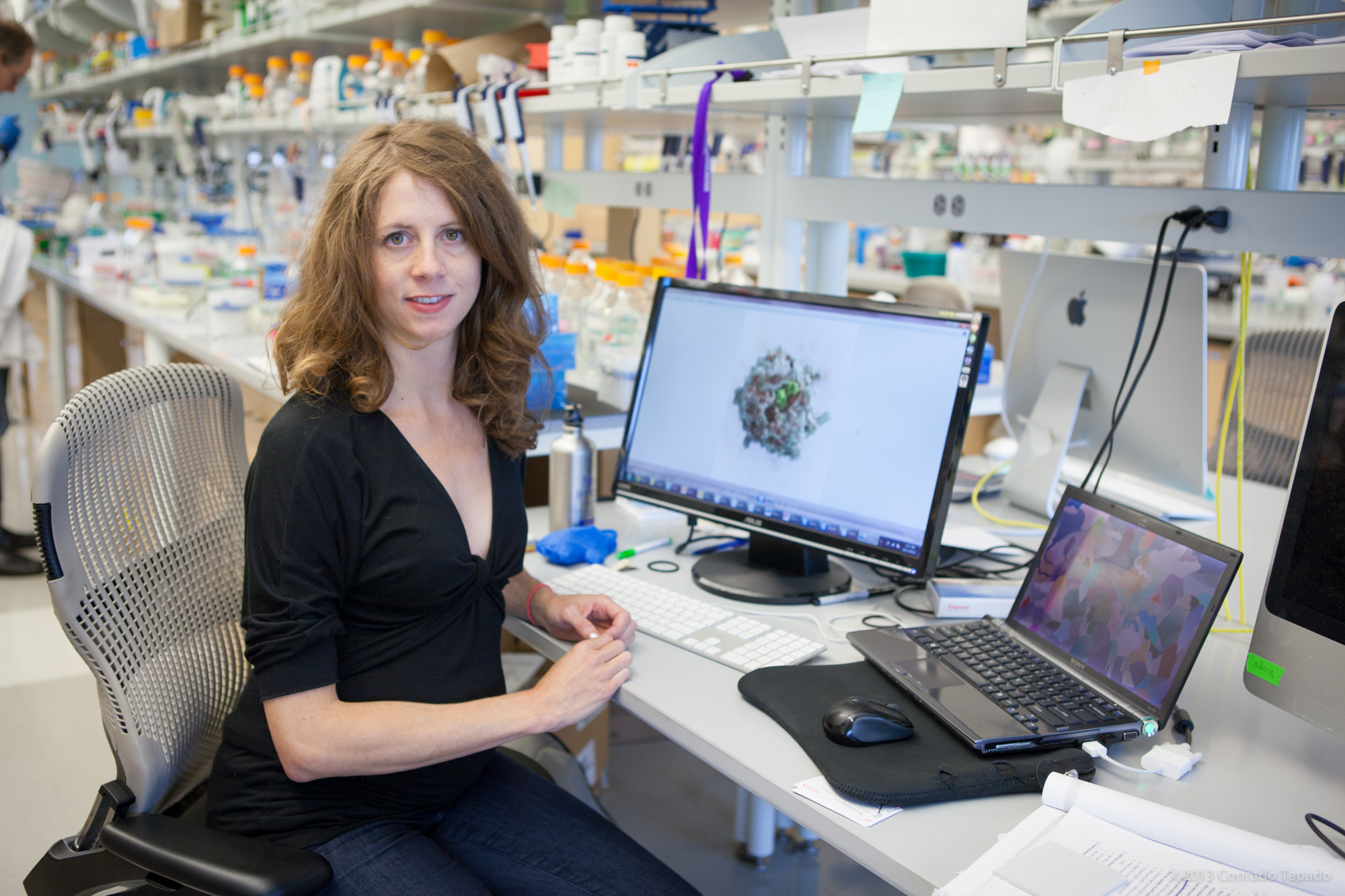
How synthetic biology could treat celiac disease
Dr. Ingrid Pultz, an IPD Translational Investigator and Chief Scientific Officer at PvP Biologics, has written a special report for the American Council on Science and Health about how protein design is being used to help fight celiac disease. Pultz describes how an international competition, a video game, and venture capital all aligned to help…
-
Cyrus Raises $8M to Advance Cloud-Based Protein Modeling and Design
Today, the first IPD spin out company Cyrus Biotechnology announced the closing of an $8M total Series A financing. The investment was led by Trinity Ventures, with participation from OrbiMed Advisors, SpringRock Ventures, W Fund, WRF Capital (a major supporter of the IPD), and individual investors. Congratulations Cyrus team! Cyrus is commercializing Cyrus Bench® an innovative user friendly software as…
-
Arzeda Raises $12M for Computational Protein Design
Today, Baker lab spin out company Arzeda announced that it had raised $12 million in a Series A round of funding led by OS Fund and including Bioeconomy Capital and Sustainable Conversion Ventures, as well as a follow-on investment from Arzeda’s seed investor, WRF Capital (a major supporter of the IPD). The new funding will enable “Technology…
-
PvP Bio Announces $35M agreement with Takeda
On January 5th, recent IPD spin-out PvP Biologics announced their agreement with Takeda Pharmaceutical Company Limited. The $35 million deal includes an option to acquire PvP at a later point. PvP has released a statement on their website, and the agreement was highly covered by other news sources, which can be found at the…
-
New spinout: PvP Biologics!
We are happy to congratulate Ingrid Swanson Pultz, an IPD Translational Investigator, and Clancey Wolf, a Research Scientist, on PvP Biologics‘ spinout! The news was announced this morning and has been circulated through various outlets. The company, created in 2015, is focusing on advancing KumaMax, a gluten-fighting enzyme that could potentially be taken orally to…
-
Arzeda scales its automated molecule development pipeline
Seattle-based Arzeda, a computational and synthetic biology company that was spun out from the University of Washington labs of Prof. David Baker, recently announced that its high-throughput, automated pipeline for protein engineering and pathway discovery had been validated by the production of two keystone molecules. The announcement is a major technical milestone for Arzeda’s approach…
-

Dr. Ingrid Swanson Pultz on UW Medicine Pulse
Recently, UW Medicine Pulse released a podcast featuring none other than our very own Ingrid Swanson Pultz! They talked to her about KumaMax and how it would help those with Celiac’s disease. Go here to see their post on it and listen to the podcast! Would you like to contribute to her research? Please go…
-
Cyrus hires new EVP of Sales
Cyrus Biotechnology, the first company spinout from the IPD’s Translational Investigator Program, welcomes their new EVP of Sales, Rosario Caltabiano. Follow the link to the Cyrus website to learn more: http://cyrusbio.com/2015/10/01/cyrus-welcomes-evp-rosario-caltabiano/
